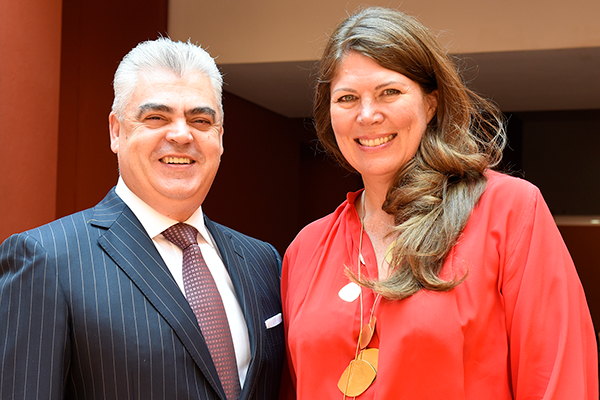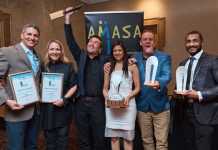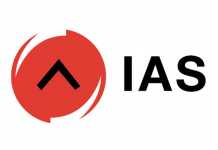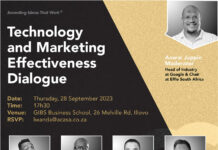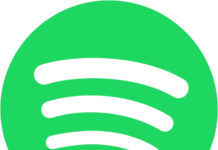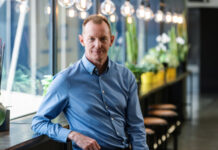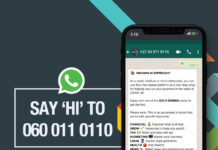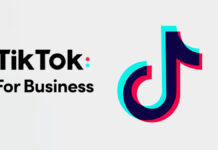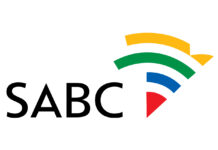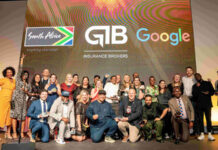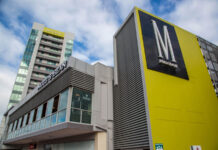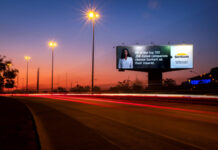Customer service excellence can only be achieved if this culture filters through the entire organisation. Service delivery cannot just be left to those at the customer “coal-face” such as call centre employees, customer-centricity must be a priority for management. The customer service environment is being transformed by technology and to be part of the future this must be embraced.
Overall Call Centre – Cell C
“Any customer-facing entity must live your brand,” said José Dos Santos, Cell C CEO, when speaking at the recent Ask Afrika Orange Index Service Diagnostics and Social Trends Conference, held at The Gordon Institute of Business (GIBS). Dos Santos was speaking about call centres, stores, outlets and partner retailers. He highlighted how Cell C’s business strategy was aligned with market research and Ask Afrika’s business insights, which won them two awards.
Cell C garnered first place as Overall Call Centre out of 132 companies across 33 industry sectors in the 2016/2017 Ask Afrika Orange Index; it also achieved first place in the industry ranking for internet service providers (ISPs). This benchmark has been part of the Contact Centre Management Group (CCMG) landscape since inception and the call centre industry supports it.
Authentic Congruency
A core theme of the conference explored by Sarina de Beer, MD of Ask Afrika, centred around authenticity and “keeping it real”. This is something that Dos Santos embodies personally and in his management style. Globally people are choosing authentic congruency over political correctness and even though Dos Santos doesn’t always say what people want to hear, but rather what they need to hear, it appears that his honesty and authenticity is reason for his staff really liking and respecting him.
This could, in part, be due to the fact that on a number of occassions he has surprised call centre staff with a visit on Christmas Day to personally thank them for their commitment. He also hosts gourmet breakfasts where he invites up to 25 junior staff members as his guests each month and asks them to tell him what customers are really saying. He also regularly walks the floor in the call centre to engage with Cell C’s frontline staff. In 2015, he launched the CEO Awards aimed at recognising and rewarding junior staff and invites staff to nominate their colleagues. This is presented at a top-class event where local artists perform.
“Performance is about management and this means rewarding customer centricity and not just paying lip service to it,” said Dos Santos.
Individualism and professionalism
Managing around 1100 call centre staff to achieve this accolade is no easy task. A “service snapshot” of 2016’s traffic is 20 million calls fielded by call centre agents, 114 000 social media queries handled and 230 000 written customer correspondence interactions. The two most important elements in the 2016/2017 Ask Afrika Orange Index for consumers were that they were treated as individuals and in a professional manner. It seems that the Cell C call centre team got this right.
“Believe” and company culture
In 2012 Dos Santos joined Cell C, which at the time was in dire straits. Along with Alan Knott-Craig (Snr), Cell C CEO from 2012-2013, they started to turn the company around. They realised that what was needed was new customers and identified that one of the biggest problems, aside from network issues at the time, was that the company was not communicating well with its customers.
In addition, employees were unhappy and felt hopeless. This had to be changed. In 2013, Cell C introduced their “Believe” campaign to the public. Dos Santos said that the campaign was targeted more at staff than consumers at the time, as a drastic culture shift was required. “Staff needed to believe in themselves and the company again.” In order to change the way staff interacted with customers, staff had to change the way they serviced each other. The culture at the time was in desparate need of an overhaul, and the “Believe” campaign was the first step. This required buy-in from the leadership and management. Those who refused to change their attitude and buy into the new company culture were replaced by, “new people who were already happy”.
Responsiveness: process and people
“The other processes all have to work to service the customer properly. We have to service ourselves as colleagues first and work collectively in a team,” said Dos Santos. If there is a delay internally, then it is the customer that has to wait.
“Speed of execution in service delivery means ‘you get me’. When the ultimate scarcity is time, responsiveness becomes the new currency,” said de Beer. “We live in the digital age of immediacy and on-demand. Customers want what they want, how they want it and when they want it. On top of that, they want life-enhancing experiences. If all this can be achieved via mobile while cocooning at home, all the better. It’s about safety and control.”
It is imperative to get the processes right, but loyalty depends 50/50 on process and people with a skew toward the softer elements. “Customer experience and the quest for loyalty is no longer a transactional game. The weight has now been fairly evenly distributed between getting the transactional efficiencies right and delivering these in a personalised and authentic, in-touch way. Customers buy into the brand psyche,” said de Beer.
Digitisation and instant gratification
When one is operating in the tech environment and dealing with mobile networks it’s imperative that people contacting the call centre get a quick response and if at all possible first call resolution (FCR). FCR has a big influence on emotional satisfaction which is a major driver of loyalty.
Technological advances have redefined our expectations of what speed and responsiveness mean. Instant gratification is not a new concept, but consumers have less patience and ‘instant’ has become even faster. Service delivery channels are often online or digitised, for example, social media or online chat customer service.
Dos Santos embraces technology- when he travels he hosts meetings via video conference with members of his management team. He concluded, “When mapping the future you have to be relevant. We are working on an app that will be able to answer certain queries. Technology is making customer service better. Virtual reality is already big in Asia with the spectrum that they have available. The internet of things is here. Technology is disruptive and people resist change, but young people adapt easily. You have to embrace science and technology to ensure you are not left behind.”
Background to the Ask Afrika Orange Index
Ask Afrika’s Orange Index provides the foundation for in-depth discussions on service trends and diagnostics in the South African corporate and consumer landscape. It is known for its singular breadth. Launched in 2001 the Ask Afrika Orange Index has a tracking history of service in South Africa for the past 15 years based on robust sample sizes. The views gathered by the Index are done through 15,000 interviews across South Africa and the data is independently audited. Its longevity is testament to its relevance to both public and private sector with regards to providing a reliable yardstick for service measurement in South Africa.
To find out more or order Ask Afrika Orange Index research reports contact: (012) 428 7400 and speak to Dr Amelia Richards (amelia.richards@askafrika.co.za ) or Mariëtte Croukamp (Mariette.Croukamp@askafrika.co.za ).
About the Ask Afrika Group:
Ask Afrika Group is the largest independent South African market research company. The company focuses on local relevance, benchmarked against the global context, and is also a member of European, Market Research Organisation (ESOMAR). Apart from its South African footprint, Ask Afrika Group also operates in a dozen other African countries.
Ask Afrika Group is well known for delivering strategic and large-scale field projects and for creating benchmarks for industry.
Target Group Index (TGI) research, for which Ask Afrika Group owns the South African copyright, has an annual single source sample of 15 000 locally and 800 000 globally. It has a global geographic coverage of 70 markets, and measures services, products, media, and brands. Ask Afrika’s knowledge of brands is extensive and TGI is already used by the majority of Top 50 advertisers and media owners in South Africa. TGI complements local and global currencies. It has various integrated software modules and offers the most comprehensive insights into demographics, behaviour, product and brand use and attitudes.
The Ask Afrika Groups’ exclusive product suite includes the Ask Afrika Orange Index®, the Trust Barometer™, TGI, Ask Afrika ICON Brands™ and Ask Afrika Kasi Star Brands, the Digital Barometer and Gateway. Ask Afrika is known for its exceptional service delivery and innovation.
Website: www.askafrika.co.za



